While AI-chat and its implications for the future of humanity remained important subjects in news concerning Google, the search engine continued to evolve with the Product Review update finishing on March 7th and a new Core Update being released a week later. Both updates seemed to have an important impact to search results with tools showing a high level of volatility – specifically on March 16th. Sites that lost traffic should pay attention to these two updates and maybe even take Google’s advice on how to react to traffic drops in their latest video.
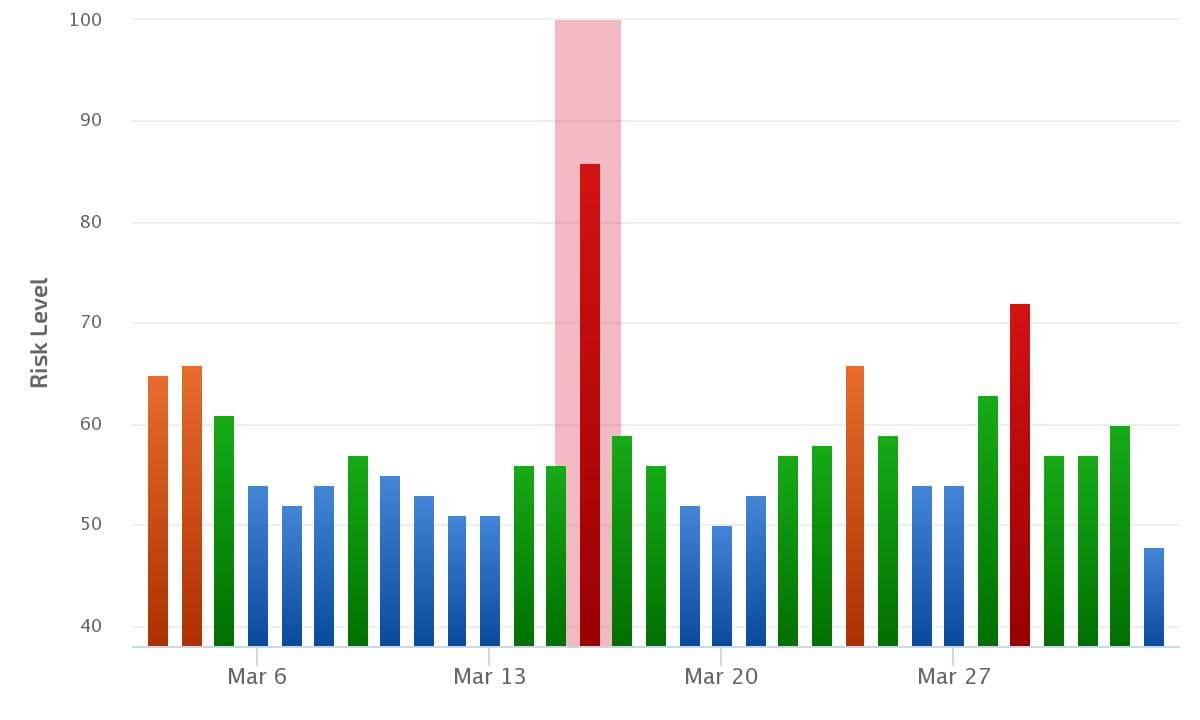
March 7th – end of Product Review Update
Released on February 21st and featuring in our Google News for February 2023, the Product Review update stopped rolling out on March 7th. The period between these two dates saw a lot of ranking changes in Google and although the update should only affect product review pages, it appeared to have a wider impact than previous Product Review updates (this was the 6th update to the Product Review system since its release in 2021).
It was also the first version of this system to impact non-English searches. The Product Review system is now also applied to searches in Dutch, French, German, Italian, Portuguese, Polish, Spanish, Russian, Vietnamese, and Indonesian.
If you lost ranking during the roll-out of this update and you write product reviews, then you should pay close attention to advice given by Google in their document How to write high quality product reviews.
March 15th – March 2023 Core Update
Google announced the release of a new Core Update on March 15th and this seemed to have a massive impact on search results across the world on March 16th and 17th with many theories given about what Google actually changed during this update that rolled out over 13 days.
Core Updates are important changes to the Google Search ranking systems. They are released fairly regularly, but the March 2023 update is the first one since September 2022. Google does not release specific information about what is changed during a Core Update, but it has said that they are designed to benefit sites that provide high-quality, relevant content for searches. Google cites the Quality Rater Guidelines in advice to website owners about Core Updates, so it is possible that this update implements new quality rater guidelines introduced in December 2022. Other theories include one that this update combats AI-generated text.
In her article Google’s March 2023 Core Update: Winners, Losers & Analysis, Lily Ray points out that the Core Update shows clear signs of introducing an “Experience” signal as part of its ranking factors and that in doing so it will favor human-written content rather than punishing machine-generated content. Her full conclusions are
This core update showed less of a clear pattern than some prior core updates but did demonstrate a few possibilities:
- The update caused significant volatility among dictionary sites, with many sites losing significant visibility but others winning
- Many sites that aggregate information from other sources without offering their own unique product or service struggled with this update
- Some niche sites that demonstrate true “Experience” saw increases
- Some big health players slightly lost visibility, giving more room to smaller health sites
- Many music and entertainment sites benefitted from the update
Google announced the core update on the @googlesearchc Twitter account with the message “Today we released the March 2023 core update. We’ll update our ranking release history page when the rollout is complete: https://developers.google.com/search/updates/ranking”.
However, when the rollout was completed – on March 28th – the ranking release history page had been replaced by a new report, hosted on the Google Search Status Dashboard site. This appears to only give information in English, whereas the previous page was also provided in other languages such as French.
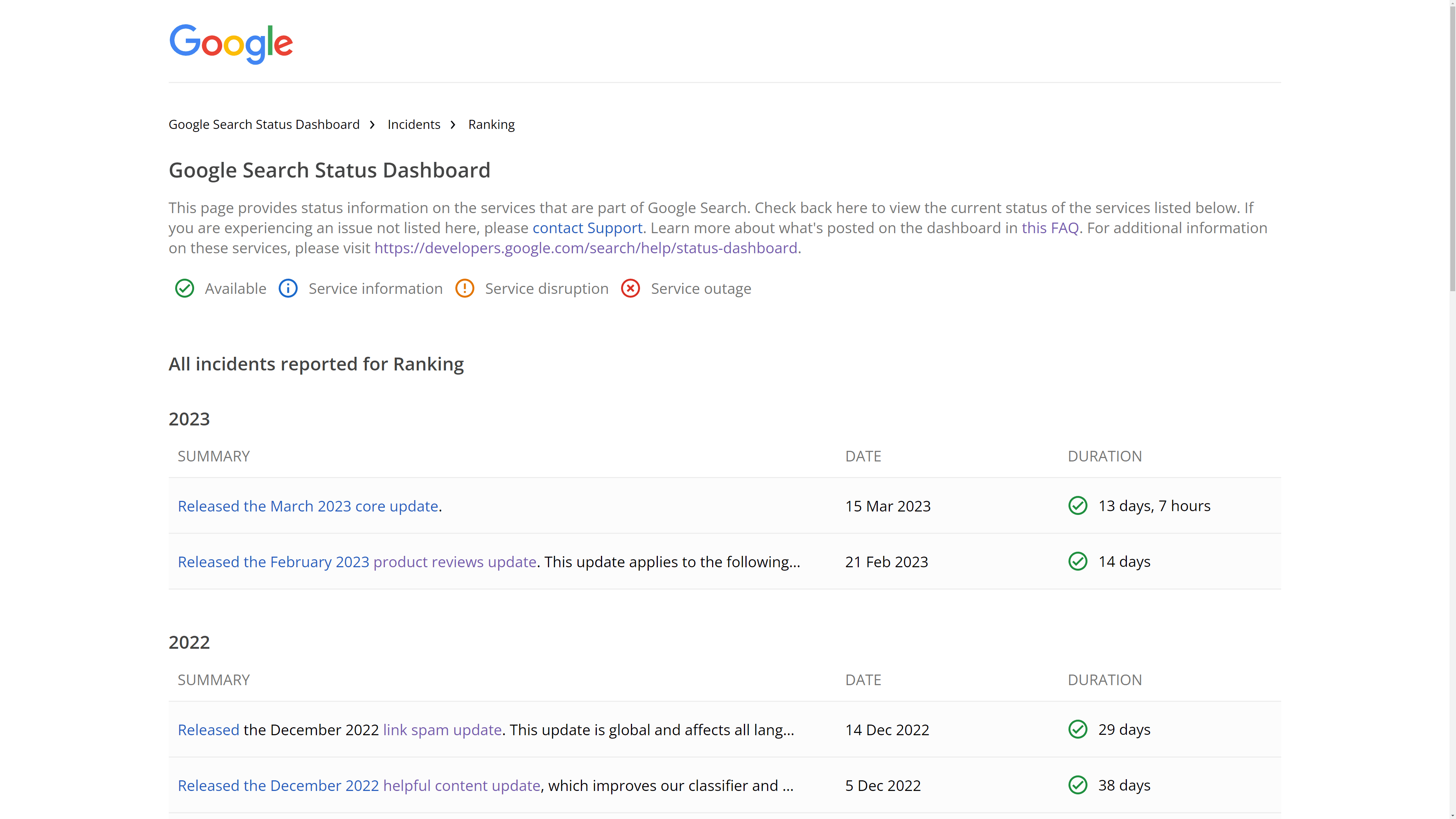
Although Google announced that the Core Update roll-out was finished on March 28th, rank tracking services such as Rank Ranger and SEMRush showed that there was significant volatility in Google results on Wednesday, March 29th. It is felt that these changes were related to the Core Update.
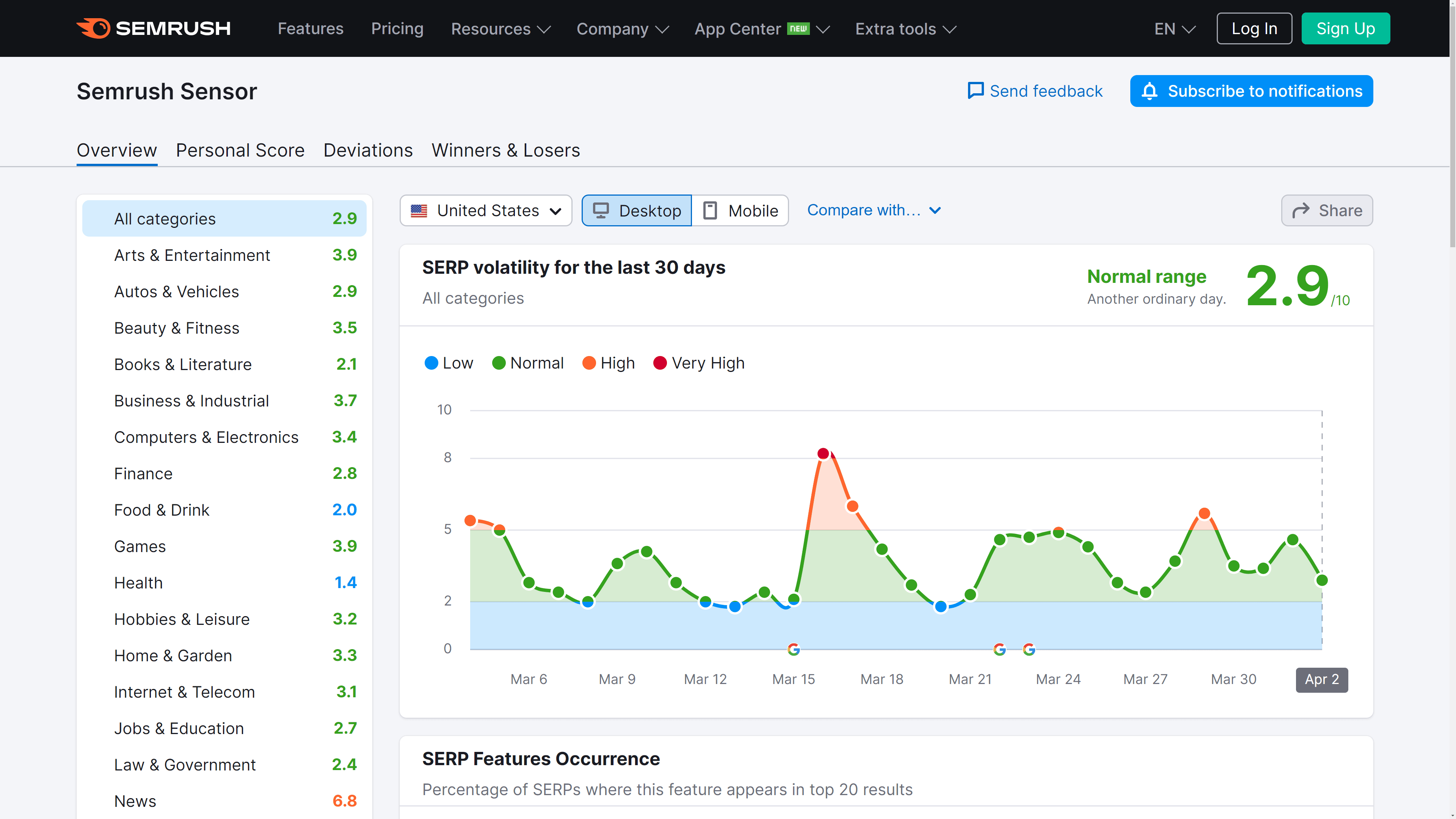
Google Bard released to more users
On March 22nd, Google’s AI chat Bard was made available in a beta version to new testers in the USA and UK. Bard is currently available as a standalone site bard.google.com, similar to ChatGPT and is not integrated into search results.
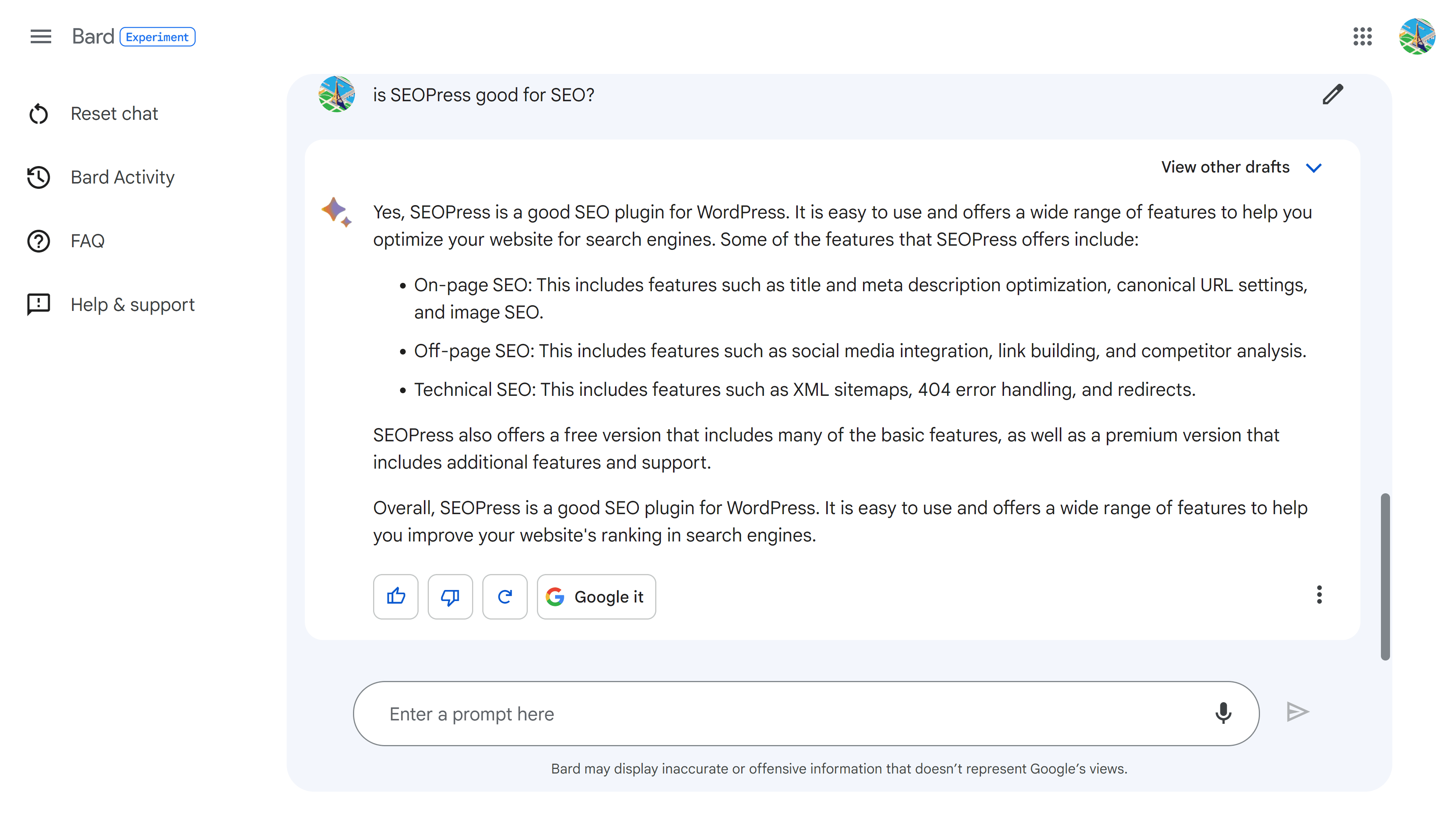
Although it is not integrated into search, Bard adds a “Google it” button to the end of many answers – encouraging users to go to search results for more information. When asked, it will not provide links to web sites and does not cite sources in its answers as Bing Chat does.
After a week testing Google Bard, SEO Brodie Clark wrote an article I tested Google’s AI chatbot Bard. Here’s how it compares to Bing. Although he is impressed with Bard, he backs up the common opinion that Bing is currently ahead of Google in the AI chat race.
Local ranking factors
If you run a website for a local business, you may be interested in reading the 2023 Local Search Ranking Factorsreport by Whitespark. This annual survey of Local SEO specialists serves to help understand how Google ranks businesses in Google Search and Google Maps. Verifying and completing your Google Business Profile remains a big ranking factor, according to the survey, but content from your website seems to be becoming more important.
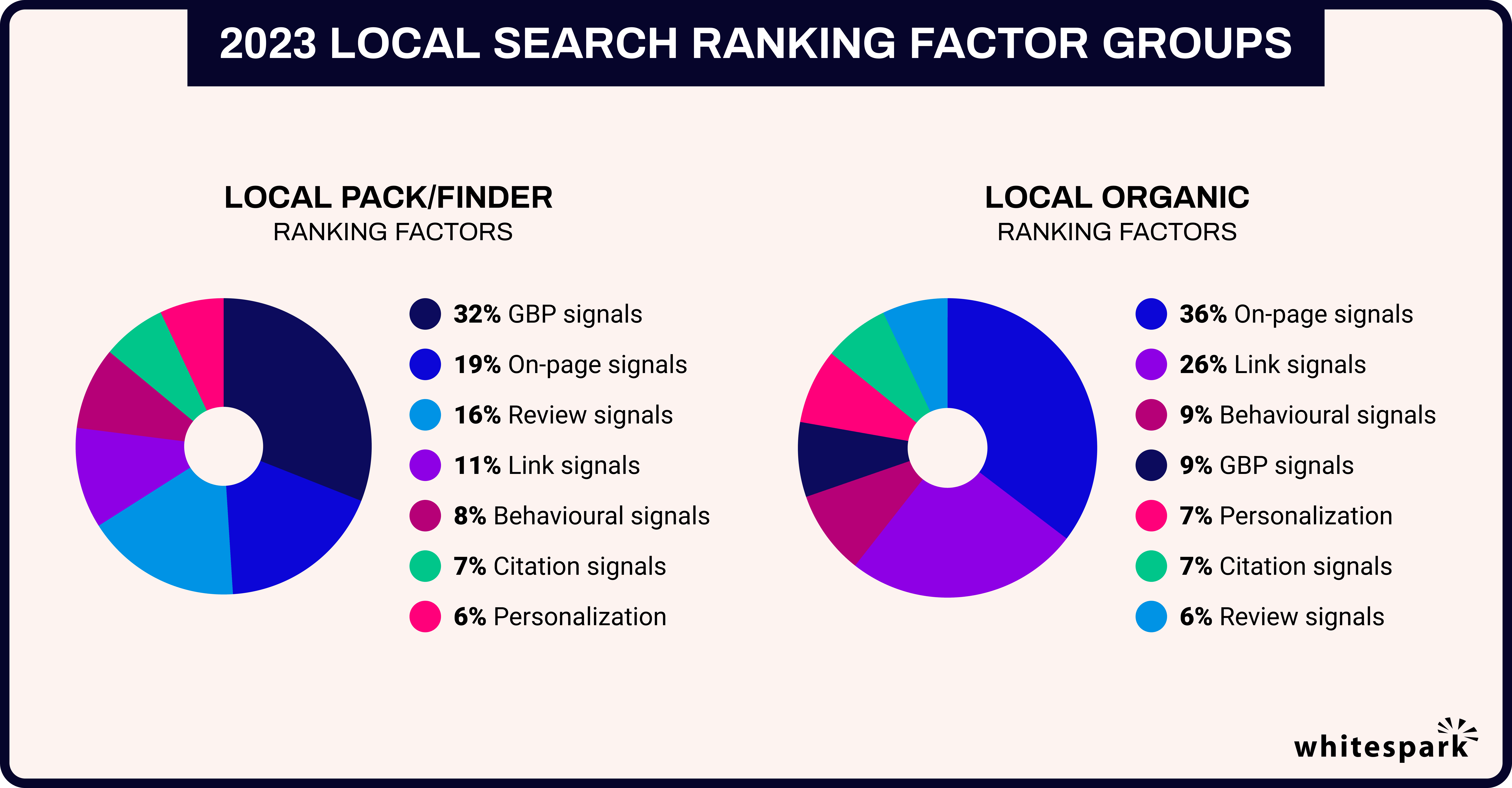
We also have an eBook on Improving your Local SEO using WordPress you may find useful to rank in Google for local searches.
Google Search Console training from Google
Since the beginning of March, Google has restarted a Search Console training series that has been on pause since 2020. Presented by Google’s Daniel Waisberg these are short tutorials to help website owners get started with optimizing search appearance on Google and increasing organic traffic.
The video published on March 29th entitled Analyzing drops in Google Search traffic draws on advice published by Google in July 2021, but adds live demonstrations of Google Search Console and tips on how to use Google Trends to see overall trends. These videos may be a good complement to our article Getting Started with Google Search Console for WordPress users.



